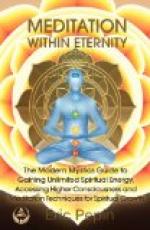“There are not wanting persons who think that this manifest state (our present existence) is the highest state of man. Thinkers of great caliber are of the opinion that we are manifested specimens of undifferentiated Being, and this differentiated state is higher than the Absolute.”
Although as Vivekananda says there are thinkers who make this claim, the idea does not find ready acceptance among theologians, either Eastern, or Western. Neither do philosophers, as a general thing incline to adopt this view. The reason for this general disinclination is not difficult of discovery. It is due to the present state of man on this planet.
If man, as we see and know mankind, is the highest state of Being (not merely of manifestation, but of Being) “then,” they say, “we have nothing to hope for.”
But have we not? May we not hope that man will manifest, on this planet a fuller realization, of that which he is in Being, and that, far from dissolving what consciousness he has, he will but plus this consciousness by a larger—an all-embracing consciousness that shall make earth a fit habitation for god-like men?
In Vivekananda’s Raja Yoga we find the following:
“There was an old solution that man, after death, remained the same; that all his good sides, minus his evil sides, remained forever. Logically stated, this means that man’s goal is the world; this world meaning earth carried to a state higher and with elimination of its evils is the state they call heaven. This theory, on the face of it, is absurd and puerile because it cannot be. There cannot be good without evil, or evil without good. To live in a world where there is all good and no evil, is what Sanskrit logicians call a ‘dream in the air.’”
It is not necessary to argue here that there is no such thing as positive evil.
St. Paul said: “I know and am persuaded that nothing is unclean of itself; save that to him who accounteth anything to be unclean, to him it is unclean.”
And again we are assured that “there is nothing good or bad, but thinking makes it so;” which means that evil has no more foundation in reality than has thought, and thought is ever-changing; transitory. Evil therefore may be entirely eliminated by thought, since it is created by thought.
That there is a condition of mankind which has been alluded to as “evil” is self-evident. The term has been employed to describe a condition of either an individual, or a society, or a nation or a race, wherein there is in harmony; disease; unhappiness. Anything that makes for suffering on any plane of consciousness, may be termed “evil” as here used.
Let us consider for a moment if it be illogical to imagine a world in which this in harmony has been eliminated. Imagine a family in which all the members radiate love and unselfish consideration. Add to this, or we may say complementary to this, we have perfect health and prosperity; and over and above all we have a conviction of immortality, eliminating doubt and fear and worry as to future sorrows or partings, with no knowledge that there are others in the world suffering.




